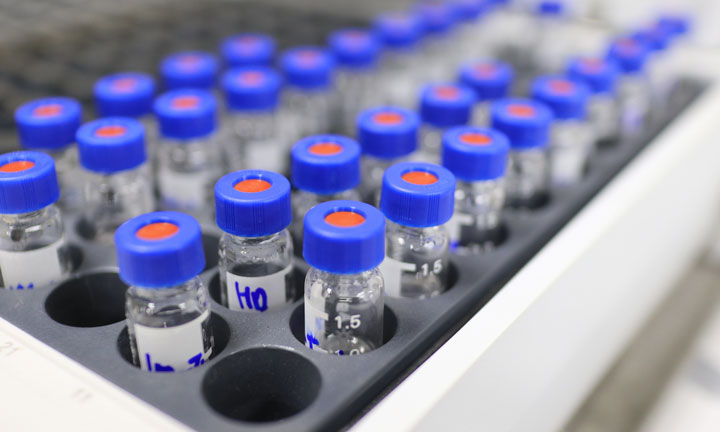The way ahead for chromatography systems after the pandemic
Posted: 28 October 2021 | Shreeras Shetty | No comments yet
The outbreak of coronavirus has had an extraordinarily positive impact on the global chromatography systems market. This article explores the expected surge in demand for chromatography systems post‑pandemic and the future potential of the market.


Chromatography is a technique used in laboratories for the disassociation of mixtures. It is extensively used in various industries, including life sciences, pharmaceutical, agriculture and biotechnology, due to its high degree of precision and efficiency.
The outbreak of coronavirus has had a remarkably positive impact on the global chromatography systems market, owing to its increased application in various drug development processes. There has been a subsequent rise in the use of chromatography techniques due to its universal approval in drug making procedures, especially at the time of the pandemic. In addition, rising awareness regarding the importance of chromatography in laboratories and the pharmaceutical industry is further expected to drive the growth of the market during the forecast period.
Moreover, the demand for chromatography systems is expected to surge exponentially due to the rising number of research activities testing the influence of coronavirus on the body and for the detection of cancer cells. Continual technological advancements in chromatography systems are further anticipated to create massive opportunities in the post-pandemic era for market growth.
Chromatography systems have advanced tremendously over the past few years, evolving as a puissant tool in the lab, owing to its adaptable ability to achieve efficient separation, identification and purification of numerous compounds in a mixture. Effective chromatographic techniques reduce a great deal of research time and detection limits, resulting in enhanced molecular structure elucidation, separation power and resolution. This makes it ideal for intrinsic application in various industries such as chemical, pharmaceutical, agriculture, food & beverage, petroleum, drug testing, clinical testing, and many more.
What is chromatography?
Chromatography is a non-destructive biophysical process involving separation, identification and purification of a mixture in order to examine its constituent parts. A series of chromatographic procedures is carried out drawing on differing characteristics such as contrasting sizes, charge, binding affinities and many other properties to constructively separate materials. This efficacious tool is extensively used across all branches of science and acts as an authoritative means of separation of complex mixtures.
COVID-19 impact on the chromatography systems market
The pandemic has adversely affected numerous industries across the globe, owing to the lockdowns in various countries across the globe. The stringent lockdown restrictions imposed by governments to curb the spread of the virus led to closures of factories, disrupting manufacturing plants, supply chains and distribution channels. Conversely, the global chromatography systems market has experienced a substantial surge, garnering immense revenue due to market growth after the pandemic.
According to the research conducted by Research Dive,1 real-time growth of the global chromatography market in the post-pandemic era is approximately $10,952 million, while its estimated market pre-pandemic was pegged at approximately $10,794 million. This significant market surge is largely attributable to the increased use of various chromatographic techniques for the development and approval of potent drugs and vaccines to combat the virus and its effects on the human body. The drug authorisation procedure entails a series of processes like separation, identification of pharmaceutical ingredients, purification, investigation of raw materials, and so on. Thus, the application of chromatography systems is ideally suited for drug approval procedures. In addition, rigid rules and regulations imposed by current good manufacturing practice (cGMP) has further accelerated the use of chromatography systems due to its various attributes, such as high precision, rigidity, purity, reliability and the availability of detection limits.
The demand for chromatography systems is expected to surge exponentially due to the rising number of research activities testing the influence of coronavirus on the body and for the detection of cancer cells”
Chromatography systems are exceedingly prevalent in various hospitals, laboratories, forensic labs, pharmaceutical production sites and numerous other facilities, facilitating countless R&D activities, the separation of complex mixtures and even the identification of cancer cells in the human body. Furthermore, chromatography methods are also used in environmental testing for the detection of PCBs (polychlorinated biphenyls) in waste oil and pesticides. PCBs are highly toxic industrial compounds whose prolonged exposure can cause various neurological and developmental problems in children. This largely accounts for the growth of the chromatography market after the pandemic.
Future potential of the market
Chromatography systems have immense potential that is expected to stimulate further growth of the market in the near future. Persistent technological advancements in chromatography systems are expected to improve features such as increasing the speed, efficiency and purity of the process. More and more hospitals, clinics and laboratories are investing in the deployment of effective chromatography systems, owing to the significant surge in the number of research activities around the globe. These factors are expected to create enormous opportunities for the growth of the chromatography systems market in the coming years.
Reference
About the author
Shreeras Shetty has a bachelor’s degree in management studies, specialising in marketing, and is currently a pharmaceutical industry content writer. He is passionate about writing and is gaining a significant amount of experience in the market research industry.
Issue
Related topics
Analytical techniques, Chromatography, Drug Development, Ingredients, Liquid Chromatography - Mass Spectrometry (LC-MS), Research & Development (R&D)









